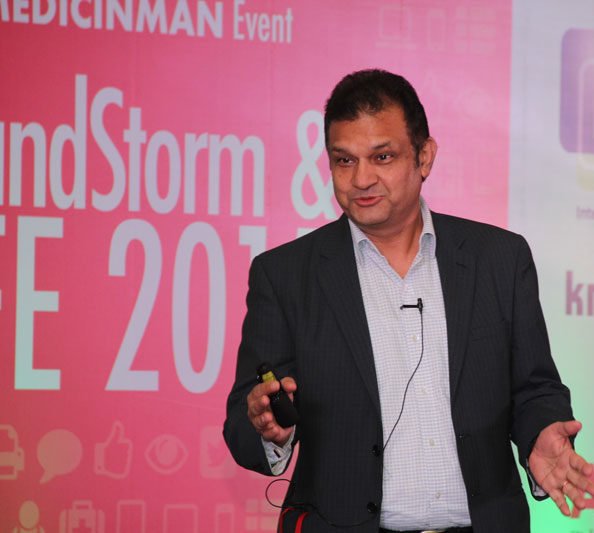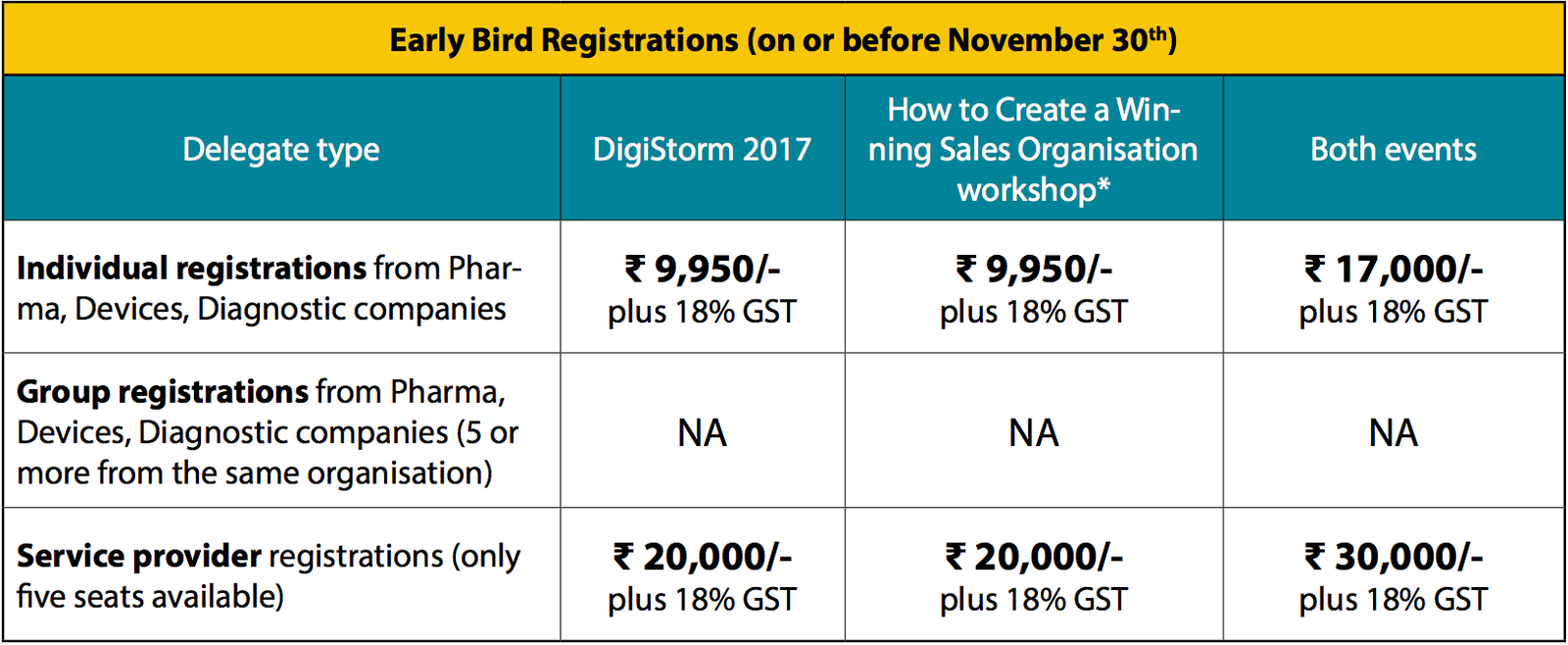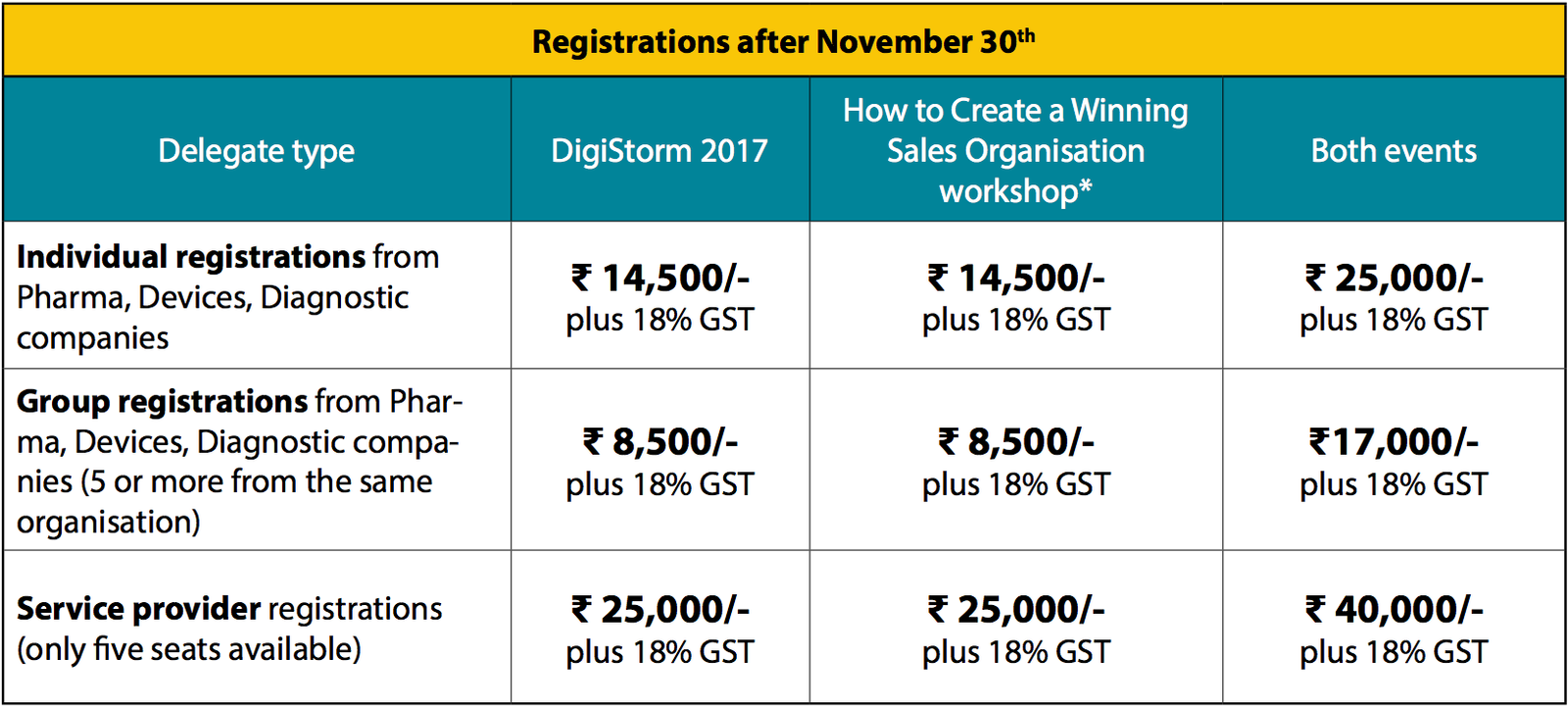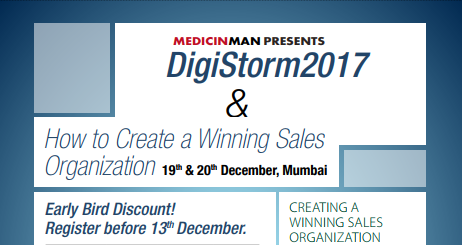 MedicinMan catches up with Deep Bhandari – Advisor at UCB where he supports the UCB leadership team on strategic projects, to develop, build and strengthen organisational capabilities.
MedicinMan catches up with Deep Bhandari – Advisor at UCB where he supports the UCB leadership team on strategic projects, to develop, build and strengthen organisational capabilities.
Deep has been a regular faculty at MedicinMan events and is the workshop leader at MedicinMan‘s upcoming workshop: “Creating a Winning Sales Organisation“ on December 20, 2017 at the Courtyard by Marriott Andheri in Mumbai (register below).
In this interview, Deep takes us through what is means to foster Sales Force Excellence in the pharmaceutical sales organisation.
What are the key challenges faced by the sales force of pharma companies operating in India?
Deep Bhandari: Most pharma companies operating in India, understand the significance of their sales force – the driver of revenues. Sales force is also responsible for establishing and maintaining relationship with various stakeholders like HCPs (doctors), retail pharmacies, distributors, payors, like the insurance companies and in some cases patient organizations or caregivers to patients. Pharma companies are aware that the cost of maintaining a sales force is very high and it has significant impact on the bottom-line. Indian Pharma market is mostly self-pay – patients pay out of their own pockets. Hence, there is a significant focus on HCPs, resulting in mega sales forces to impact share of the voice (SoV) using the time-tested Reach and Frequency model. Traditionally, mega sales forces seem to be an effective strategy to support portfolios, which have little or zero product differentiation.
Unfortunately, most pharma companies do not have a clear strategy on “How to Improve Sales Force Effectiveness”. The smarter companies started taking active interest in addressing Sales Force Effectiveness (SFE), while others are still adhering to what was working in the past or improving efficiencies, cutting cost etc.
However, increasing pressure on pricing due to NLEM, ban/rationalization of Fixed Dose combinations (FDCs), MCI Guidelines and the emergence of Unified Code for Pharmaceutical Marketing (UCPMP) have significantly impacted sales productivity, growth, sales force retention and sales force morale. Unfortunately, most pharma companies do not have a clear strategy on “How to Improve Sales Force Effectiveness”. The smarter companies started taking active interest in addressing Sales Force Effectiveness (SFE), while others are still adhering to what was working in the past or improving efficiencies, cutting cost etc.
Other important challenges are sales force structure and roles – most sales organizations are poorly designed and are unnecessarily complex. Sales roles and responsibilities are unclear. Often there are too many different sales roles creating “role pollution”. Span of control is either too narrow or too wide.
Finally, quality of sales force has diminished over the years – often sales people lack skills to do the job they are assigned, resulting in low productivity and high attrition.
How should sales force be re-designed to face those challenges effectively?
Deep: Successful organizations have begun to realise that sales force is one of the most critical component of pharma business. A highly effective sales force can make sustainable difference to organizational performance. enhancing SFE is not an easy task, yet the best way to start is to understand and discover sales force challenges. Creating a winning sales force will need a comprehensive and practical approach to clearly understand what a company is good at, and what it needs to improve.
Over the years I have seen that inconsistencies and incompatibilities in the sales and marketing processes can do a lot of harm. Hence, it is essential to develop a well-integrated framework to achieve sales force excellence. The most expensive and difficult part of strategy execution is aligning sales force and go-to-market efforts with company’s strategies and goals. Doing this well, is essential for company’s success in the marketplace.
The most expensive and difficult part of strategy execution is aligning sales force and go-to-market efforts with company’s strategies and goals. Doing this well, is essential for company’s success in the marketplace.
Other closely related challenge is to ensure day-to-day decisions are in line with strategy, and resources are allocated to support execution of the strategy.
In my view, aligning strategy with sales is the most critical part of execution because it involves multiple factors:
- Coherent Strategies
- Right Sales Profile and People-Hiring, On-boarding, Training and Development
- Sustainable Right Behaviours
- High Performance Culture, Reward, Recognition and Incentives Programs
What competencies do sales leaders at different levels need, to build a Winning Sales Organisation?
Deep: Creating a Winning Sales Organization, should ideally begin with developing line manager’s (FLMs/SLMs and NSMs) role and responsibilities. A clear job definition enables organizations to effectively execute sales force strategy. For example, FLMs are ultimately responsible for achieving sales & profit goals with and through their team. To accomplish this they need to be adept in three key roles:
- People Manager – get right people, coach and develop, build team, manage team to accomplish goals, motivate and reward the team.
- Business Manager – make resources available for team’s success, ensure strategy execution and adaptation (local needs), manage performance, operational excellence and build high performance culture.
- Customer Manager – coach team with sales system and processes, seek new business opportunities and manage key customer relationships and sales.
However, these roles may undergo some change in line with portfolios, e.g. specialty sales FLMs will play different role than primary care sales FLMs.
Today, the brunt of achieving sales targets falls upon the Medical Reps and their immediate supervisor, the Front-line Manager, what contribution should the SLM, ZSM, NSM, Heads of Training/SFE/HR make to the process of building a Winning Sales Organisation?
Deep: Great question. however, there is no easy answer, as sales systems are usually complex and one can easily ignore important gaps. Hence, a comprehensive assessment of sales system framework will help to unearth potential issues and ways to bridge the gaps. For example:
- What percentage of sales force is on budget and overall business unit results?
- Are customer needs being met or what is the percentage of satisfied customers?
- Sales force engagement in strategic activities (percentage of SF earning Incentives)?
- Sales force benchmarking – How good are they as compared to competition?
- What is the level of execution of each of the sales force drivers?
In a rapidly changing business and competitive landscape, even if sale force are on budget it is not necessarily an indicator of sales force excellence. We need to consider all SFE drivers to create a strong sales force, effective sales activities and ultimately sales results. Therefore, creating a wining sales organization will need a systematic approach where the contribution of each driver of sales force effectiveness must be well accounted for.
Can you tell us something about the global pharma conferences and workshops that you regularly participate as a faculty? What has been your learning from these workshops when it comes to building a Winning Sales Organisation, and how can they be adopted by pharma companies in India?
Deep: I have been attending global commercial excellence and sales force effectiveness summit for last 10 years, in Europe, Middle East and Asia Pacific. Over the years there is greater focus on understanding what is working and what is not, by systematically evaluating and fact-based decision making. We can certainly learn to move away from experiential to fact-based decisions for all important challenges like sales force size, structure, activities and incentives. Investing in state-of-the-art technology to release unproductive administrative work from sales force time and re-allocate time to customer interactions. Empowering quality of sales people and customer facing excellence by Multi Channel Marketing (MCM) and Closed Loop Marketing (CLM) by strategic digitalization.
Over the years there is greater focus on understanding what is working and what is not, by systematically evaluating and fact-based decision making. We can certainly learn to move away from experiential to fact-based decisions for all important challenges like sales force size, structure, activities and incentives.
Similarly, there is huge shift in focus from transactional selling models (products) to transformational selling (patient outcomes) and multiple stakeholders instead of focusing only on physicians. Certainly, there is lot to learn and leapfrog quickly rather than going through same learning curve.
Creating a Winning Sales Organisation Workshop
Key Topic Areas
1. The Role of Sales Force
- Understanding strategic sales force role & Business Model
- Go-To-Market Strategies – A competitive advantage
- Strategic approach to Sales Force Sizing & Structure
- Role Taking, Role Making and Role Shaping
- Role ‘pollution’ and strategic impact on results
2. Understanding Territories and Deployment
- Understanding Customer Value Proposition and Interactions
- Sales Force Operational Excellence:
- Understanding Customers – Strategic Approach to Segmentation and Targeting
- Customer Value Proposition
- Business/Account Planning Process
- Sales Force Performance Measurement – KPIs
- A Strategic Approach to CRM / CLM and Digitalization
- Managing Sales Performance
3. Building A Winning Sales Force
- Hiring High Potential Sales Talent
- Understanding Sales Competencies
- Assessing and Developing Competencies
- Behavioral Event Selection Process
- On-Boarding and Developing Sales Talent
- Building High Performance Culture
- Sales Force Motivation
- Incentives, Rewards and Recognition
- Career Pathways
- Managing Performance
4. Sales Manager Excellence
- What Makes an Excellent Sales Manager & How to Select One
- Developing a Great Sales Manager
- Understanding Competencies
- Understanding the Role of Sales Managers
- Management Vs Leadership
- Understanding Sales Force Excellence Drivers
- Sales Manager as a Driver of Change
- Understanding Coaching and Team Development
- Managing Performance
Faculty
Workshop Leader
Deep Bhandari – Advisor at UCB Pharma
Panel Members
Vijay Charlu – AVP, Marketing and Sales, Indoco Remedies
Satya Mahesh – Director and Head of Operational Excellence at Cipla
Milind Thatte – Director Commercial Excellence & BD – Healthcare India and APAC; CE Lead, Biopharma, Merck Group
Amlesh Ranjan – Deputy Director, Super Specialty, Sanofi
Hariram Krishnan – Executive Coach and Mentor; Ex-MD, Galderma
Salil Kallianpur – Partner and Co-founder, The Digital Transformation Lab
Anup Soans – Editor, MedicinMan
Fee Matrix









